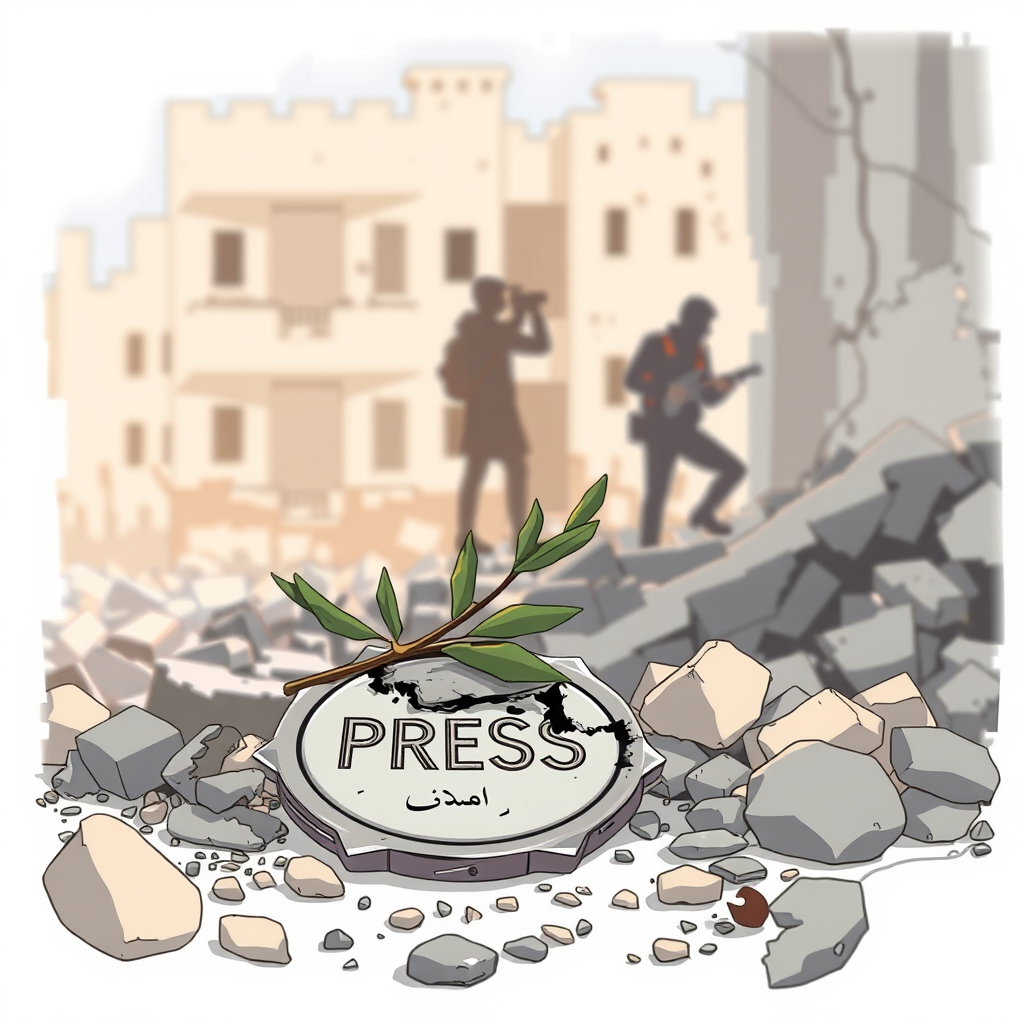Palestine’s Press Under Attack: Silencing the Truth

The past year and a half has witnessed a systematic and deeply concerning targeting of Palestinian journalists, occurring amidst ongoing conflict and a troubling silence from the international community. At least 210 Palestinian journalists have been killed by Israeli forces since October 2023, succumbing to sniper fire, collapsing buildings, and even deliberate burning. A particularly devastating incident on April 7, 2025, saw an Israeli airstrike hit a gathering of journalists near Nasser Hospital in Khan Younis, claiming the life of veteran journalist Helmi Al-Faqaawi and injuring nine others, two critically.
Rights groups are starkly asserting that the number of journalists killed in Palestine during this current conflict surpasses the combined toll suffered by journalists in both World Wars – a chilling statistic that demands immediate attention. The Palestinian Journalists Syndicate has rightfully condemned the Khan Younis attack as a “massacre,” urgently calling upon the UN Security Council and the International Criminal Court to investigate potential war crimes and ensure accountability.
Working in Gaza has become arguably the most dangerous assignment in the world. Journalists face a constant barrage of threats: targeted killings, arbitrary arrests, physical assaults, digital surveillance, and relentless censorship. The collapse of essential infrastructure – power outages, limited internet access – further complicates their work, compounded by the immense psychological trauma of losing colleagues and loved ones.
Journalist Khaled Abdel Hamid succinctly captures the reality: these attacks aren’t isolated incidents, but a deliberate attempt to erase the Palestinian narrative. Fikri Ibrahim emphasizes the lack of effective international protection, stating this isn’t random, but a calculated campaign to silence the truth. He rightly calls for robust archiving of evidence and increased coordination with press freedom organizations.
Fear has driven many journalists to abandon easily identifiable press credentials and equipment. Monjed Jadou, editor-in-chief of the Palestine News Network, recounts being assaulted by Israeli soldiers and settlers, leading him to forgo press identification. Gaza-based journalist Salameh Younis echoes this sentiment, stating a press vest now functions as a target, offering no real safety. This threat is amplified by digital suppression, with Israel intensifying efforts to block Palestinian journalists’ social media accounts under the guise of combating “incitement.”
Beyond the physical dangers, Palestinian media is facing economic devastation. A sharp decline in viewership and advertising revenue has forced outlets to lay off staff or suspend operations. Israeli accusations of propaganda and security threats have prompted international donors to withdraw funding, pushing independent media toward collapse. This creates a precarious situation where journalists face not only physical threats but also job insecurity and professional extinction.
The targeting of journalists is a clear violation of international humanitarian law, specifically the Geneva Conventions and the 1977 Additional Protocol I, which designate journalists as civilians and prohibit targeting them. The International Covenant on Civil and Political Rights and Article 19 of the Universal Declaration of Human Rights further guarantee freedom of expression and the right to information. Yet, these protections remain largely unenforced in the case of Palestinian journalists.
Organizations like Reporters Without Borders and the Committee to Protect Journalists have repeatedly condemned the impunity with which Israel operates against media workers. Despite these condemnations, international institutions have failed to implement effective deterrents or accountability mechanisms. This inaction sets a dangerous precedent, weakening the very frameworks designed to protect civilian life in war.
The assault on Palestinian journalists is not simply an attack on individuals; it’s a broader campaign against freedom of the press and the right to truth. The global community must urgently strengthen efforts to protect Palestinian media workers and hold perpetrators accountable. This is a fight for the universal right to know, to speak, and to document reality – and it demands international solidarity. The silencing of Palestinian voices isn’t just a tragedy for those directly affected; it’s a loss for the world, hindering a complete and accurate understanding of events unfolding in the region. It’s a situation that demands immediate and sustained attention from the international community, not just condemnation, but concrete action to protect those risking their lives to report the truth.